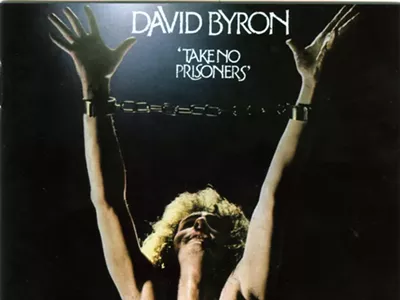The sound of the lonely man with a guitar invariably conjures up mythical American images of forlorn highways and dusty ghost towns, The Last Picture Show and Paris, Texas. Norwegian singer-songwriter Thomas Dybdahl grew up with such snapshots; the long autumns and winters of his home country take a toll, he says, on the mood of everyone there.
"You spend a lot of time indoors, maybe dreaming of something that doesn't exist and never has existed." Perhaps his music, newly introduced to a U.S. audience by the Decca compilation Songs, has such homey immediacy because this iconography is as exotic and unreal in America as in Scandinavia.
"That's what romanticizing is," Dybdahl muses. "You take something, and you twist it."
Dybdahl was surrounded by American music growing up in the rainy southwest of Norway. He remembers observing Prince's LoveSexy concert film with fascination and attempting to replicate Michael Jackson's dance moves. But in an unlikely twist on folk-rock tradition, it was Metallica that caused him to pick up a guitar for the first time. "I'm not ashamed to say I was a shredder," he laughs. Later, his awakening to Neil Young and Bob Dylan led him to write for the first time, primarily in English. "English-speaking pop music is almost a genre in itself," he says. "There's something about the language that lends itself differently to melody than Norwegian. It's like an instrument; it feels natural."
After a stint with the band Quadrophonics, the singer began in the early 2000s to release his own EPs, which he calls "living room records," and in 2002 his single "From Grace" broke through to radio in Norway.
Now Dybdahl is a star there, both solo and as leader of the supergroup the National Bank.
Though his low-key arrangements and subtle guitar trickery recall the work of Lambchop's William Tyler, his vocals resemble a more sheepish, self-deprecating version of Jeff Buckley, which makes it doubly surprising that he has yet to find an audience in this country, despite a 2007 tour supporting fellow countryman Sondre Lechre. "I loved it," he says of the opening slot, "it was like a vacation, like waking up in a different country every day but with a weird common thread. But I didn't have anything to do except the one half-hour I'd play every night!"
Dybdahl is back now, hoping to gain a foothold and overcome what he calls the "invisible pop cultural barrier." Fortunately, despite condensing a solo career that's already past the decade mark, Songs is surprisingly seamless. His achingly delicate songwriting is a constant, his production sometimes lush, as on the Hollywood schmaltz of "A Love Story," but more often stark and spacious. The gently bounding momentum of "Cecilia" is relieved only by an irresistible melody, the tension of the heartthrob Orbison falsetto on "From Grace" offset by a cushy organ line.
Decca hopes Songs will generate enough interest to spearhead a reissue program for the five original albums. Although Dybdahl speaks with the affable perspective of a man along for the ride, his yearning to become a success stateside is palpable. One Songs centerpiece is a glorious, appropriately titled lament, "Someday You'll Dance for Me, New York City." Its starry-eyed desperation could fall flat, but it's magic because of Dybdahl's casual approachability. He convinces that he's just the guy sitting next to you having a chat who could at any moment break into song, coating it all with the wise and lofty bullshit of hope and memory — yeah, romance.
Thursday, July 21 at the Magic Stick Lounge, 4120 Woodward, Detroit; 313-833-9700.







